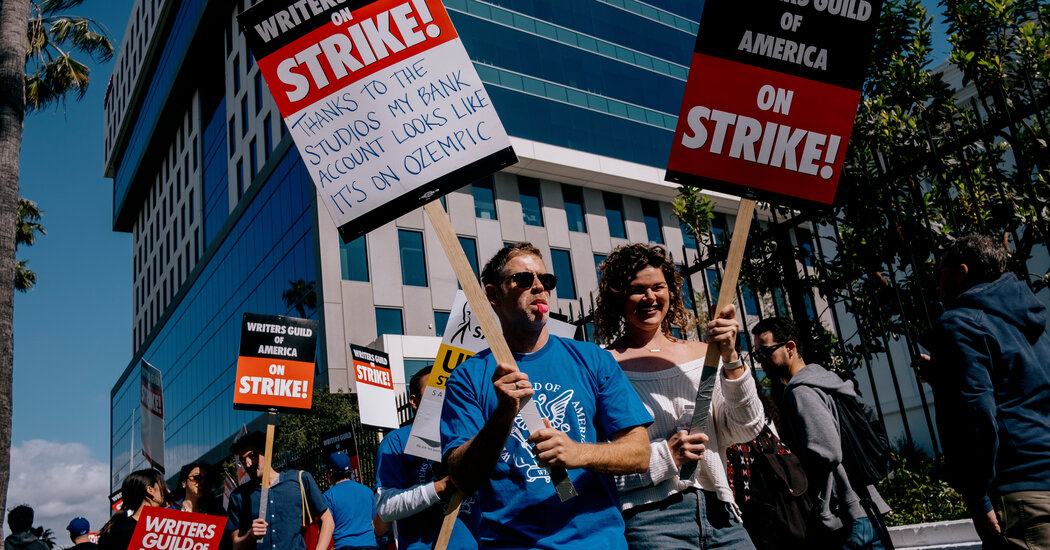The crowd began a new chant, as if it were a sign. “Hi hi! How, how! This corporate greed must go!”
Similar scenes of solidarity unfolded in the entertainment capital. At Paramount Pictures, more than 400 writers — and a few supporting actors, including Rob Lowe — gathered to wave pickets with slogans like “Despicable You” and “Honk if you like words.” Screenwriters such as Damon Lindelof (“Watchmen,” “Lost”) and Jenny Lumet (“Rachel Getting Married,” “Star Trek: Strange New Worlds”) marched outside Amazon Studios. Bitterness was in the air outside Walt Disney Studios, where a writer played drums on empty buckets next to a sign that read, “What we ask is a drop in the ocean.”
Another sign immediately goaded Mickey Mouse: “I smell a rat.”
But the strike, at least during opening hours, seemed to be hottest at Netflix, with some writers describing the company as “the crime scene.” That’s because Netflix popularized and, in some cases, pioneered streaming practices that writers say made their appeal unsustainable — a job that had always been volatile depending on audience tastes and the whims of network executives’ revolving sets. , has become much more.
For example, the streaming giant has become known for “mini-rooms,” which is slang for hiring small groups of writers to map out a season before it’s officially given the green light. Because it’s not a formal writer’s room, the pay is lower. Writers in mini-rooms sometimes only work for 10 weeks and then have to rush to find another job. (If the show is greenlit and goes into production, fewer writers will be kept on board.)
“If you only get a 10-week job, which a lot of people are doing now, you really should start looking for a new job on day one,” says Alex Levy, who has written for Netflix shows like “Grace and Frankie. “In my case, I haven’t been able to get a writing job for months. I’ve had to borrow money from my family to pay my rent.”

